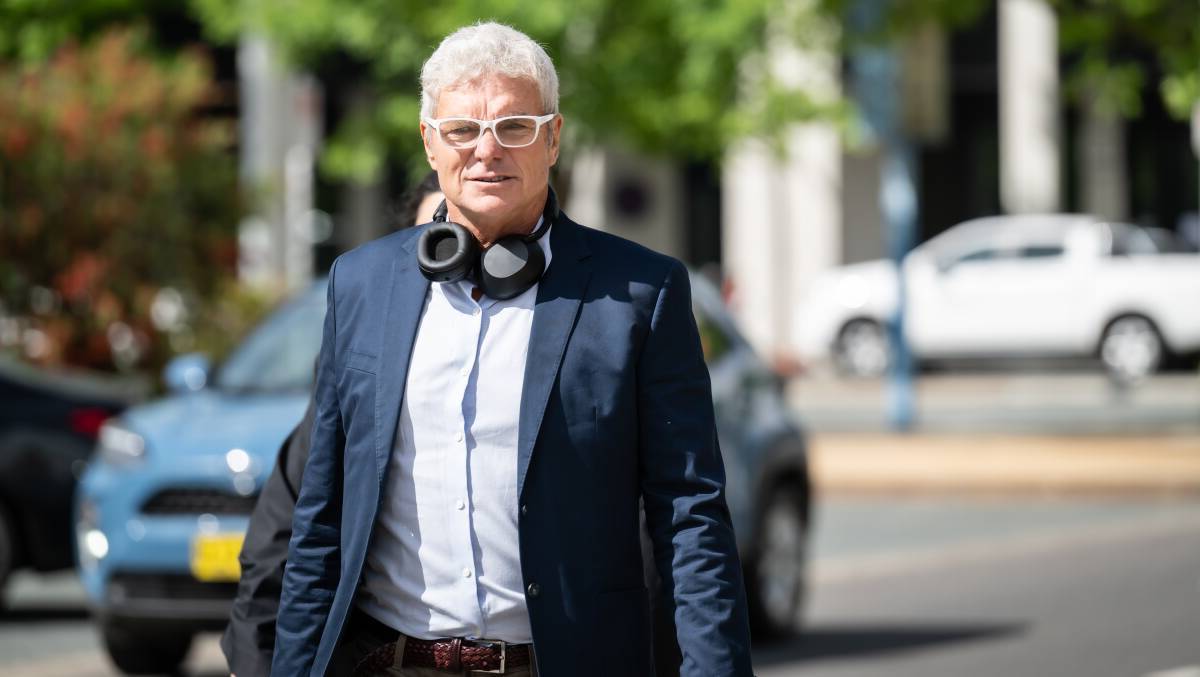
In today's fast-paced world, where transparency and accountability often clash with national security interests, whistleblowers like David McBride stand out. McBride, a former Australian Defence Force lawyer, took a bold step by leaking classified military documents to the media, aiming to expose alleged war crimes committed by Australian forces in Afghanistan. This act of courage, fraught with legal and personal risks, thrust him into the spotlight, raising questions about the ethics of whistleblowing and the fine line between national security and the public's right to know. Through these 10 facts about David McBride, readers will gain insight into the motivations, consequences, and complexities surrounding his decision to speak out, offering a nuanced perspective on the role of whistleblowers in today's society.
Key Takeaways:
- David McBride, a former Australian Defence Force lawyer, blew the whistle on alleged war crimes in Afghanistan, sparking national and international debates on military ethics and whistleblower protection.
- McBride's actions have led to proposed legislative changes to better protect whistleblowers, highlighting the importance of transparency and accountability in government and military operations.
Who is David McBride?
David McBride is a former Australian Defence Force lawyer who gained significant attention for his role as a whistleblower. He disclosed classified information about alleged war crimes committed by Australian forces in Afghanistan. His actions sparked a national and international debate on military conduct, ethics, and the protection of whistleblowers.
Early Life and Career
Born in the United Kingdom, McBride moved to Australia, where he pursued a career in law before joining the Australian Defence Force (ADF). His service in the ADF included deployments to Afghanistan, where he worked as a military lawyer. It was during these deployments that McBride witnessed what he believed were serious ethical and legal violations by Australian troops.
The Whistleblowing Incident
-
McBride's decision to blow the whistle was driven by his concern over the conduct of Australian special forces in Afghanistan. He attempted to raise these issues internally within the ADF but felt his concerns were disregarded.
-
After exhausting internal avenues, McBride provided classified documents to the Australian Broadcasting Corporation (ABC). These documents formed the basis of the "Afghan Files," a series of reports published by the ABC in 2017 that alleged unlawful killings and misconduct by Australian soldiers.
Legal Battles and Public Reaction
-
Following the publication of the Afghan Files, McBride faced serious legal repercussions. He was charged with several offences, including theft of Commonwealth property and unauthorized disclosure of information. These charges could result in significant prison time if he were found guilty.
-
Public opinion on McBride's actions is divided. Some view him as a hero for exposing wrongdoing and standing up for ethical conduct in the military. Others see him as a traitor who endangered national security and the lives of Australian soldiers.
Impact on Whistleblower Protection
-
McBride's case has had a profound impact on discussions about whistleblower protection in Australia and internationally. It highlights the risks faced by individuals who expose wrongdoing within government or military institutions.
-
Legislative changes have been proposed to better protect whistleblowers in Australia, though progress has been slow. McBride's situation underscores the need for robust legal protections that ensure whistleblowers can come forward without fear of retribution.
McBride's Personal Reflections
-
In interviews, McBride has expressed no regrets about his decision to disclose the information, despite the personal and legal challenges he has faced. He believes that his actions were necessary to bring attention to what he saw as grave injustices.
-
McBride's commitment to ethical conduct and accountability in the military continues to inspire debates about the role of whistleblowers in society. His case serves as a reminder of the complex ethical dilemmas faced by those in positions of authority.
The Future of Whistleblowing
-
The global response to McBride's case indicates a growing recognition of the importance of whistleblowers in maintaining transparency and accountability in government and military operations.
-
Advancements in legal protections for whistleblowers are seen as essential for democratic societies. McBride's experience is a catalyst for ongoing discussions about how to balance national security interests with the need to expose wrongdoing and protect those who take the risk to do so.
A Final Glimpse at David McBride's Legacy
David McBride's story isn't just about whistleblowing; it's a testament to the power of integrity and courage in the face of adversity. His actions remind us that standing up for what's right, even when it's risky, can spark crucial conversations and lead to meaningful change. McBride's journey underscores the importance of transparency and accountability in government and military operations, highlighting the role individuals can play in safeguarding democratic values. As we reflect on his contributions, let's remember the value of truth and the impact one person can have on society. McBride's legacy is a call to action for all of us to be vigilant, informed, and, above all, brave in our pursuit of justice and equity.
Frequently Asked Questions
Was this page helpful?
Our commitment to delivering trustworthy and engaging content is at the heart of what we do. Each fact on our site is contributed by real users like you, bringing a wealth of diverse insights and information. To ensure the highest standards of accuracy and reliability, our dedicated editors meticulously review each submission. This process guarantees that the facts we share are not only fascinating but also credible. Trust in our commitment to quality and authenticity as you explore and learn with us.


